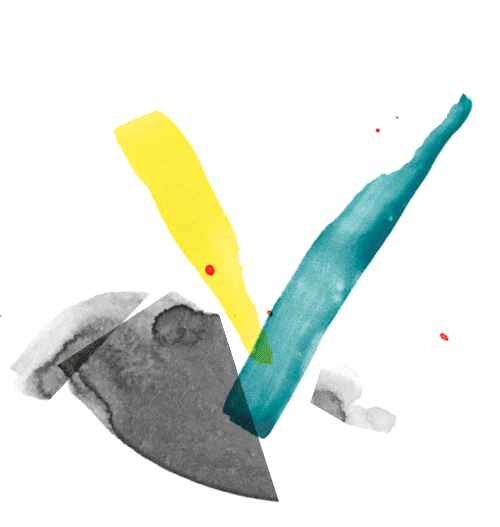

Sign up for our newsletters. You can change the settings or unsubscribe at any time.
Thank you for your subscription. We have sent you an e-mail with a confirmation link.


exp. 1
exp. 2
exp. 3

El Palomar
Venue: KW Institute for Contemporary Art
El Palomar
Founded 2013 in Barcelona, ES
Investigating queer ancestry and history, the Barcelona-based art collective El Palomar was formed in 2013 by Mariokissme and R. Marcos Mota and has since developed a shared practice that debunks authorship and reorganizes art as a critical space of sex and gender dissidence.
Their installation Schreber is a Woman (2020) departs from the case and memoirs of Daniel Paul Schreber, a German judge confined to the Sonnenstein mental asylum in Saxony in 1894. In his Memoirs of My Nervous Illness from 1903, he recounts feeling like a woman, among other experiences. Schreber’s text influenced Sigmund Freud and helped him to elaborate his theories on paranoia and schizophrenia. Relevant to Schreber’s story is the fact that his father, Dr. Moritz Schreber (1808–61), authored several books that proposed strict authoritarian models for the physical and moral education of children, which were very popular in Germany and other parts of Europe at the turn of the nineteenth century. This family history helps explain why Daniel Paul Schreber’s text was seminal to postwar analyses of authoritarianism by poststructural philosophers and writers such as Elias Canetti (Crowds and Power, 1960).
El Palomar uncover and reinterpret the experience and writings of Schreber from a transfeminist perspective that resists concepts of confinement and exclusion, of domestication and control; they deconstruct the Freudian link between Schreber and schizoprenic paranoia from a queer viewpoint. Focusing on the images and sounds that Schreber describes in his memoirs, the installation offers a rereading of the case as rooted in a period when gender identities were restricted to classical binary archetypes. Schreber is a Woman subverts the original circumstances of queer lineage, recontextualizing gender and pleasure in the present.
Amelia Bande
Struggle as Culture: The Museum of Solidarity, 1971–73
María Berríos
Essay
Grupo Experimental de Cine en acción
Gabriel Peluffo
Drawing
COVID-19 VIDEOS
Carlos Motta
Video
Freiheit für Chile!
Anonymous
Photo album
New Look
Flávio de Carvalho
Performance
IV: How Fear Can Dismantle a Body. Vis-a-Vis with two of four curators of the 11th Berlin Biennale
María Berríos, Lisette Lagnado
Conversation
By using this website you agree to the use of cookies in accordance with our data privacy policy.

El Palomar
Venue: KW Institute for Contemporary Art
El Palomar
Founded 2013 in Barcelona, ES
Investigating queer ancestry and history, the Barcelona-based art collective El Palomar was formed in 2013 by Mariokissme and R. Marcos Mota and has since developed a shared practice that debunks authorship and reorganizes art as a critical space of sex and gender dissidence.
Their installation Schreber is a Woman (2020) departs from the case and memoirs of Daniel Paul Schreber, a German judge confined to the Sonnenstein mental asylum in Saxony in 1894. In his Memoirs of My Nervous Illness from 1903, he recounts feeling like a woman, among other experiences. Schreber’s text influenced Sigmund Freud and helped him to elaborate his theories on paranoia and schizophrenia. Relevant to Schreber’s story is the fact that his father, Dr. Moritz Schreber (1808–61), authored several books that proposed strict authoritarian models for the physical and moral education of children, which were very popular in Germany and other parts of Europe at the turn of the nineteenth century. This family history helps explain why Daniel Paul Schreber’s text was seminal to postwar analyses of authoritarianism by poststructural philosophers and writers such as Elias Canetti (Crowds and Power, 1960).
El Palomar uncover and reinterpret the experience and writings of Schreber from a transfeminist perspective that resists concepts of confinement and exclusion, of domestication and control; they deconstruct the Freudian link between Schreber and schizoprenic paranoia from a queer viewpoint. Focusing on the images and sounds that Schreber describes in his memoirs, the installation offers a rereading of the case as rooted in a period when gender identities were restricted to classical binary archetypes. Schreber is a Woman subverts the original circumstances of queer lineage, recontextualizing gender and pleasure in the present.
Amelia Bande
A World Without Bones
Agustín Pérez Rubio
St Sara Kali George
Delaine Le Bas
Soundscape
Expresiones de la locura: el arte de los enfermos mentales
Hans Prinzhorn
Monograph
„Klaus Eckschen: Hörspiel“
Die Remise
Hörspiel
II: La Solidaridad va Más Allá de un Concepto. Entre las Curadoras de la XI Berlin Biennale
Lisette Lagnado, Agustín Pérez Rubio
Conversation
BLM KOREA ARTS
#BlackLivesMatter #BLMKoreaArts
Young-jun Tak
Statement
By using this website you agree to the use of cookies in accordance with our data privacy policy.

El Palomar
Venue: KW Institute for Contemporary Art
El Palomar
Founded 2013 in Barcelona, ES
Investigating queer ancestry and history, the Barcelona-based art collective El Palomar was formed in 2013 by Mariokissme and R. Marcos Mota and has since developed a shared practice that debunks authorship and reorganizes art as a critical space of sex and gender dissidence.
Their installation Schreber is a Woman (2020) departs from the case and memoirs of Daniel Paul Schreber, a German judge confined to the Sonnenstein mental asylum in Saxony in 1894. In his Memoirs of My Nervous Illness from 1903, he recounts feeling like a woman, among other experiences. Schreber’s text influenced Sigmund Freud and helped him to elaborate his theories on paranoia and schizophrenia. Relevant to Schreber’s story is the fact that his father, Dr. Moritz Schreber (1808–61), authored several books that proposed strict authoritarian models for the physical and moral education of children, which were very popular in Germany and other parts of Europe at the turn of the nineteenth century. This family history helps explain why Daniel Paul Schreber’s text was seminal to postwar analyses of authoritarianism by poststructural philosophers and writers such as Elias Canetti (Crowds and Power, 1960).
El Palomar uncover and reinterpret the experience and writings of Schreber from a transfeminist perspective that resists concepts of confinement and exclusion, of domestication and control; they deconstruct the Freudian link between Schreber and schizoprenic paranoia from a queer viewpoint. Focusing on the images and sounds that Schreber describes in his memoirs, the installation offers a rereading of the case as rooted in a period when gender identities were restricted to classical binary archetypes. Schreber is a Woman subverts the original circumstances of queer lineage, recontextualizing gender and pleasure in the present.
Amelia Bande
Being in Crisis together – Einander in Krisen begegnen
Feminist Health Care Research Group (Inga Zimprich/Julia Bonn)
Online workshop
El primer nueva corónica y buen gobierno
Felipe Guamán Poma de Ayala
Chronicle
Invitation to the Species: Cecilia Vicuña
Tamaas / Cecilia Vicuña
Podcast
Maternidades subversivas
María Llopis
Monograph
Freiheit für Chile!
Anonymous
Photo album
Queer Ancient Ways: A Decolonial Exploration
Zairong Xiang
Monograph
By using this website you agree to the use of cookies in accordance with our data privacy policy.

El Palomar
Venue: KW Institute for Contemporary Art
El Palomar
Founded 2013 in Barcelona, ES
Investigating queer ancestry and history, the Barcelona-based art collective El Palomar was formed in 2013 by Mariokissme and R. Marcos Mota and has since developed a shared practice that debunks authorship and reorganizes art as a critical space of sex and gender dissidence.
Their installation Schreber is a Woman (2020) departs from the case and memoirs of Daniel Paul Schreber, a German judge confined to the Sonnenstein mental asylum in Saxony in 1894. In his Memoirs of My Nervous Illness from 1903, he recounts feeling like a woman, among other experiences. Schreber’s text influenced Sigmund Freud and helped him to elaborate his theories on paranoia and schizophrenia. Relevant to Schreber’s story is the fact that his father, Dr. Moritz Schreber (1808–61), authored several books that proposed strict authoritarian models for the physical and moral education of children, which were very popular in Germany and other parts of Europe at the turn of the nineteenth century. This family history helps explain why Daniel Paul Schreber’s text was seminal to postwar analyses of authoritarianism by poststructural philosophers and writers such as Elias Canetti (Crowds and Power, 1960).
El Palomar uncover and reinterpret the experience and writings of Schreber from a transfeminist perspective that resists concepts of confinement and exclusion, of domestication and control; they deconstruct the Freudian link between Schreber and schizoprenic paranoia from a queer viewpoint. Focusing on the images and sounds that Schreber describes in his memoirs, the installation offers a rereading of the case as rooted in a period when gender identities were restricted to classical binary archetypes. Schreber is a Woman subverts the original circumstances of queer lineage, recontextualizing gender and pleasure in the present.
Amelia Bande
Memorial to the Sinti and Roma Victims of National Socialism
Dani Karavan
Memorial
Touching Feeling. Affect, Pedagogy, Performativity
Eve Kosofsky Sedgwick
Monograph
Struggle as Culture: The Museum of Solidarity, 1971–73
María Berríos
Essay
COVID-19 VIDEOS
Carlos Motta
Video
A World Without Bones
Agustín Pérez Rubio
Museo de la Solidaridad Salvador Allende (MSSA) in Berlin
A conversation between María Berríos and Melanie Roumiguière
Conversation
By using this website you agree to the use of cookies in accordance with our data privacy policy.
By using this website you agree to the use of cookies in accordance with our data privacy policy.




